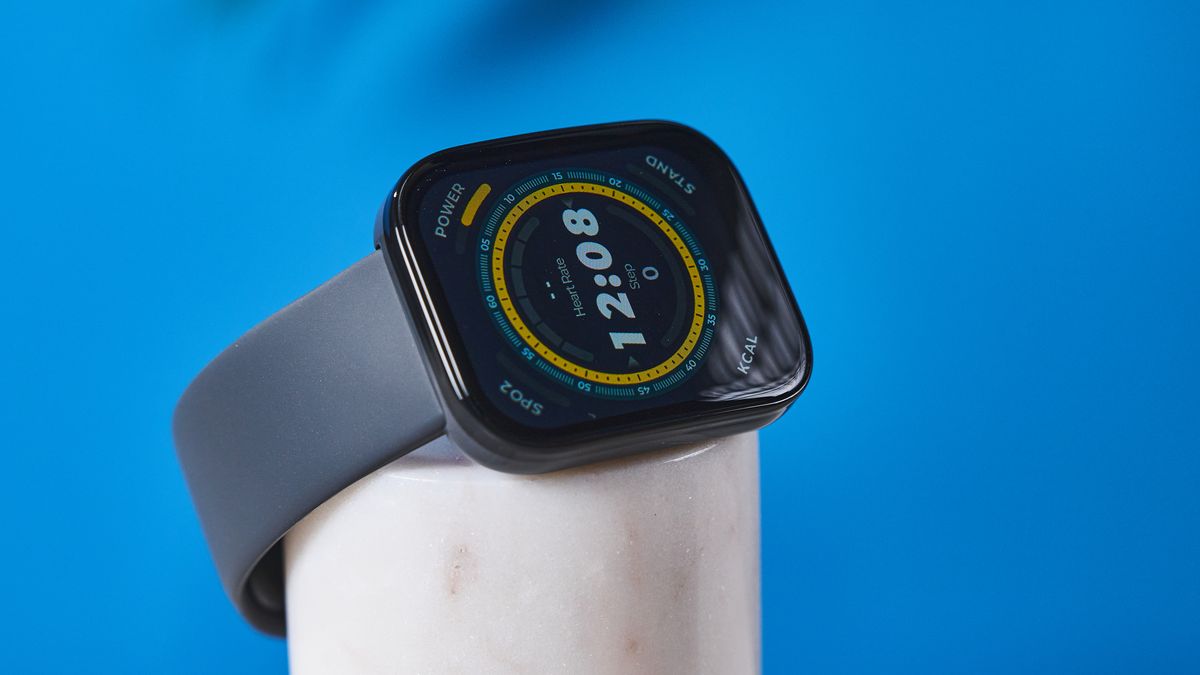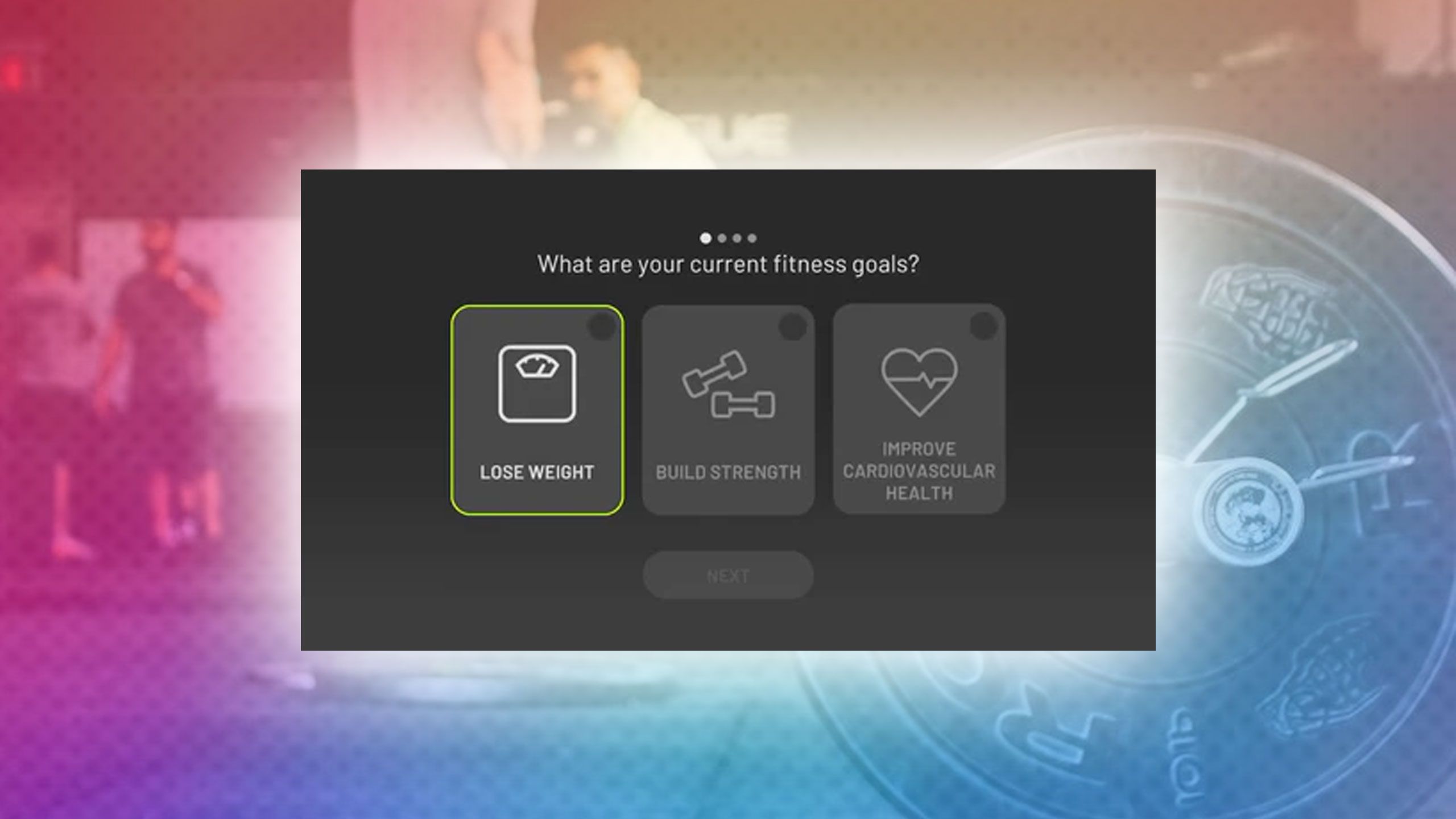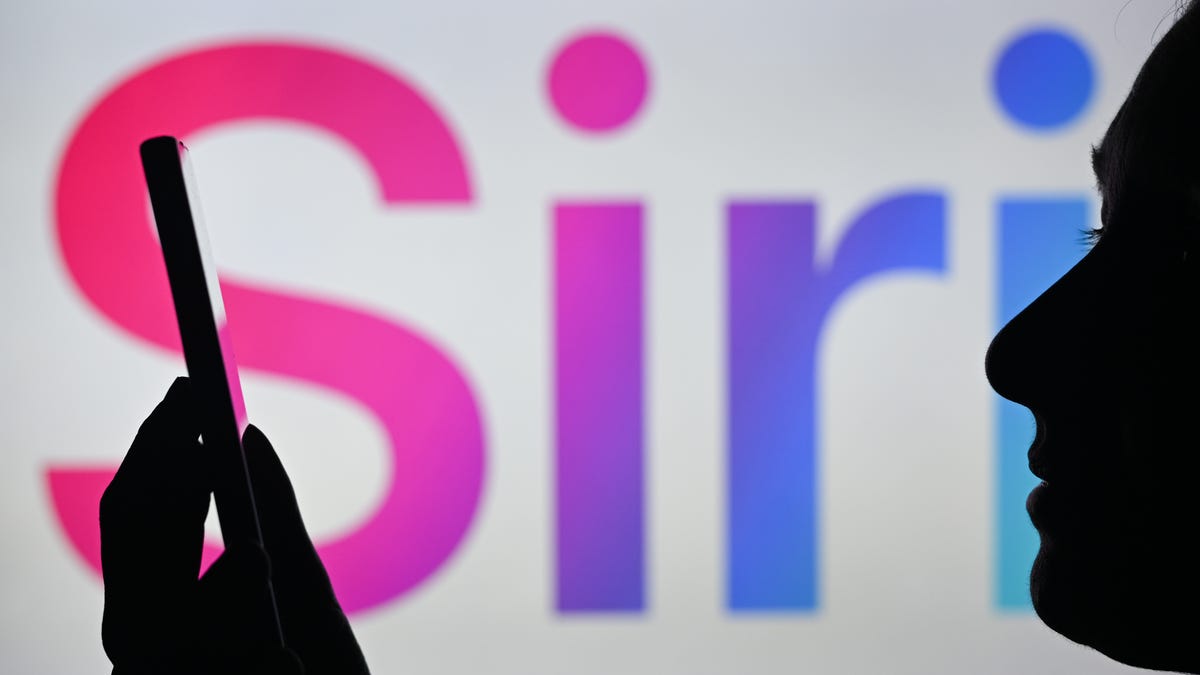The Amazfit Bip 5 is an absolute steal. At only $89/£89, it’s a fitness tracker with the capability to do things you’d expect on a $200+ device. The Bip 5 fitness tracker tracks your sleep, workouts, offers meditation apps, reminders, games, and can store your music, membership cards, and blood oxygen level, among many other things.
I used the Amazfit Bip 5 to track my cycling, running, yoga, and strength training, although you can select from 120 sport modes including dancing and even board games. With the built-in stress monitor, I can only imagine that when playing chess, it’ll track your stress levels spiking when you lose your queen on the second move.
So it’s ridiculously cheap for its specs and it looks good, meaning it could be one of our best cheap fitness trackers — but what’s the catch? Does it run out of battery in three hours, does it count steps when you’re lounging on the couch, does it vibrate randomly and wake you up in the middle of the night? Find out in my Amazfit Bip 5 fitness tracker review.
Amazfit Bip 5 fitness tracker review
- What is it? A budget fitness tracker with the looks of an Apple Watch
- What does it cost? It’s an absolute steal: only $89 at Amazon
- Who is it for? People who want the performance of an Apple Watch but don’t want to spend $$$
- What do we like? The range of health readings from workout tracking, sleep tracking, menstrual cycle tracking, to meditation apps and productivity reminders
- What are its weaknesses? A lot of the extra features like ‘Zepp coach’ are AI-powered and locked behind a paywall
Amazfit Bip 5 fitness tracker review: Specs
| Price | $89.99 / £89.90 |
| Colors | black, pink, white |
| Screen | 260 PPI |
| Size (face) | 1.9 inches |
| Size (strap) | 6.1 – 8.3 inches |
| Weight | 0.9 ounces (without strap) |
| Battery life | 10 days |
| Charging time | 2 hours |
| Connectivity | Bluetooth 5.2, Android 7.0, iOS 14.0 |
| Durability | IP68 |
Amazfit Bip 5 review: Price & availability
The Amazfit Bip 5 costs $89 at Amazon in the U.S. and £89 at Amazon U.K.. This is extraordinarily cheap for a fitness tracker or smartwatch, especially one of this quality — the Apple Watch SE Gen 2, the cheapest of Apple’s range, will set you back $249. The cheapest Fitbit, the Fitbit Charge 6, is $152 and lacks the membership card storage, music, and voice assistant support the Bip 5 offers. Amazfit does have form in this regard, though, as the Amazfit Band 5 ($44) is our favorite fitness tracker under $50.
Amazfit Bip 5 fitness tracker review: Design
For only $89, you might expect a watch with a dim face, laggy features, or pixelated images. You’ll get none of that with the Bip 5. The watch face is bright, fluid, and well-made, and could honestly be mistaken for an Apple Watch at a glance. I tested the black version, but the watch comes in creamy white and pale pink, too. Amazfit sells a variety of straps made from different materials for the 22m strap width the Bip 5 uses, so you have plenty of choice.
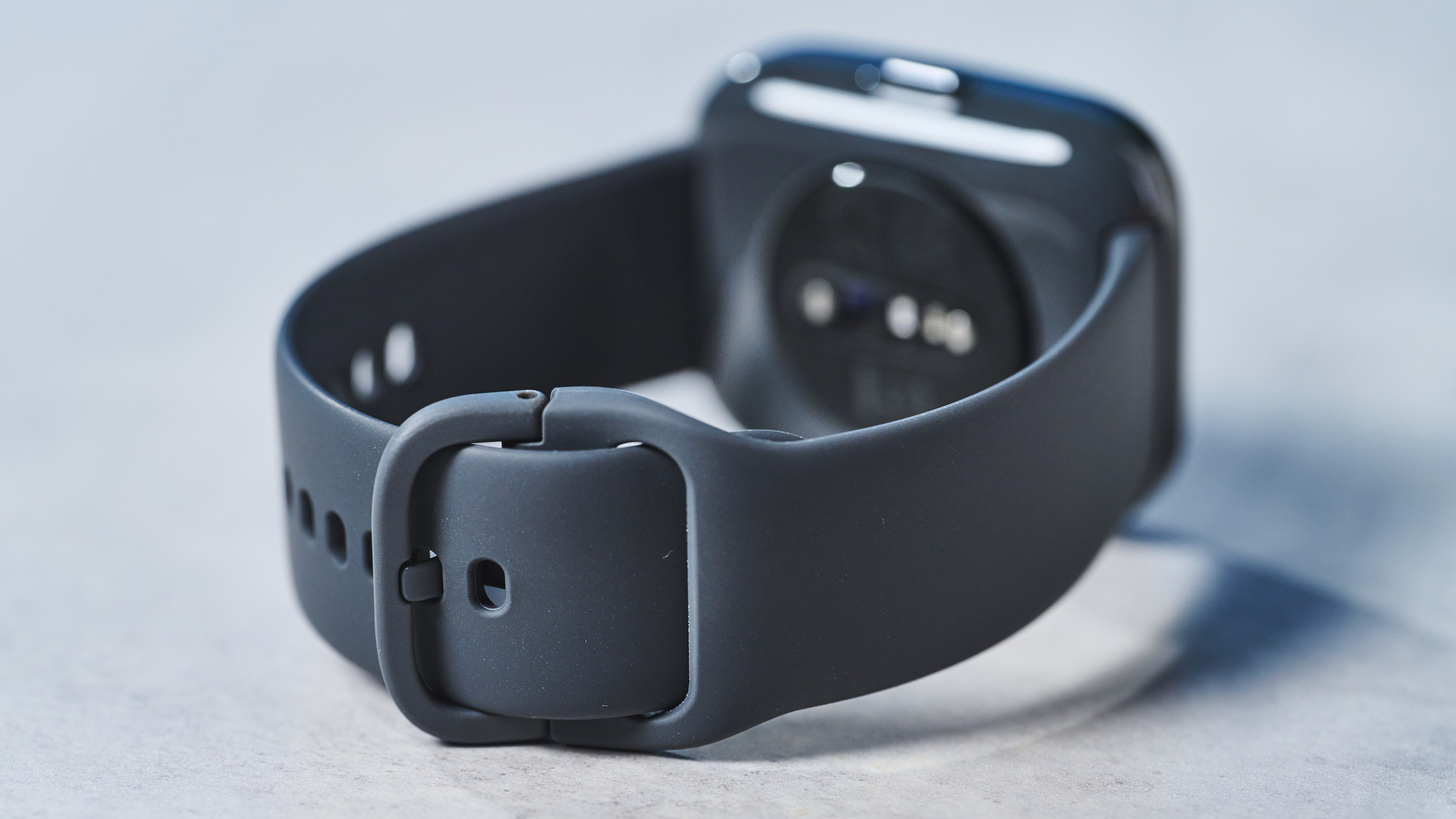
In the watch, you can choose from over 70 watch face designs. The designs range from seasonal (there are loads of Valentine’s day designs), sports, geometric shapes, and cutesy animals. There are plenty of free face designs, and I found a super-cute watch face of a fishing cat in the image library.
The band is TPU, not silicone, which is durable and flexible, but not as durable and flexible as silicone. The band has an annoying habit of trapping sweat underneath, but as long as you’re showering after a workout — which hopefully you are — that will only be a temporary problem. For general wear, though, it’s a comfortable band that I had no problems using once I figured out how tight it’s supposed to be.
Amazfit Bip 5 fitness tracker review: Fitness & health features
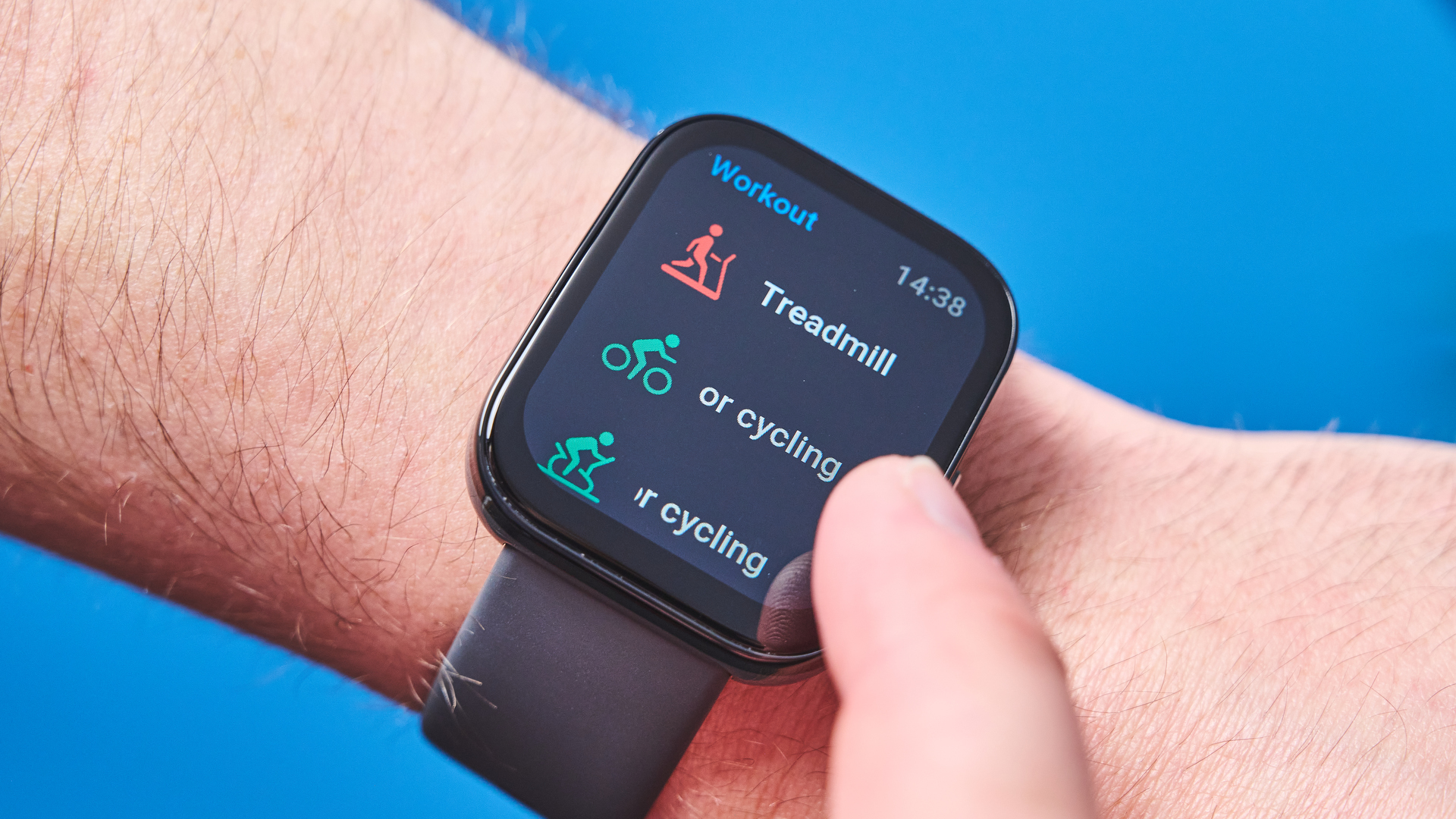
This $89 fitness tracker has 120 sport types. No, that’s not a typo — 120. Whether you’re a runner, a cyclist, or simply want to track your dancing at a concert or nightclub, the Bip 5 has you covered. As a runner, cyclist, yogi, and occasional strength trainer, I used the Bip 5 to track my regular activities.
Where I found the Bip 5 most effective is with my cycling tracking. The GPS tracking synthesizes in a nice color-coded map showing your speed from slow to fast and presents your stats in a digestible table underneath the map. There’s a ‘detailed data’ button where you can look at things like training load, best pace, and aerobic and anaerobic stats. The Fitbit Versa 4 ($199) had a number of discrepancies with heart rate tracking, but I found that the Bip 5 accurately tracked my workouts — or at least telling me I was in anaerobic heart rate zones when I sure felt like it!
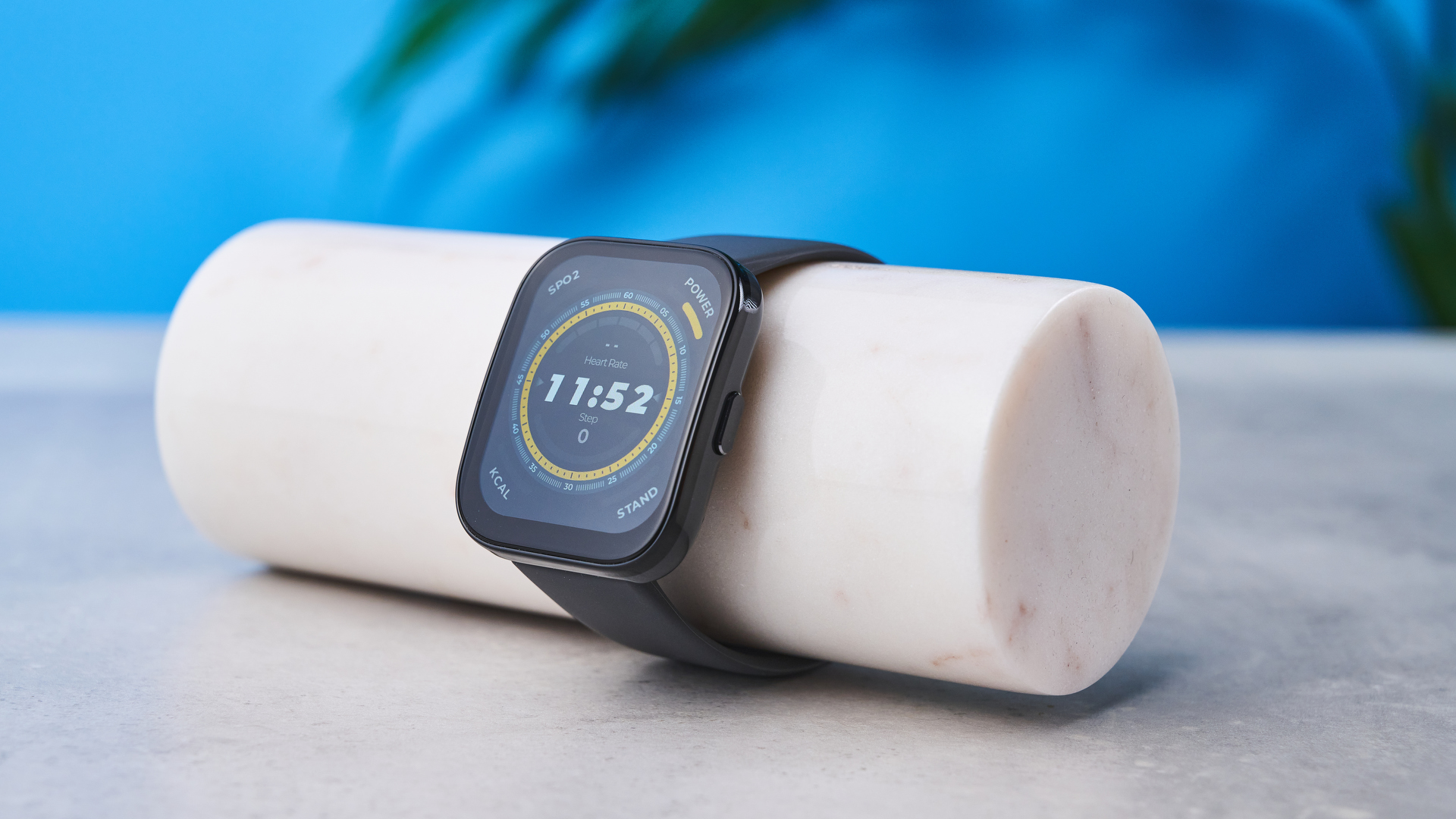
While I really liked how the Bip 5 tracked my activity, it’s not perfect. The Zepp app has something called a ‘PAI’ score. The ‘PAI’ score is a built-in reward system that tracks your activity and gives you a score based on how active you are. If you achieve the Zepp app’s target of 100 PAI every week, you’re at a ‘reduced risk’ of cardiovascular disease, according to a scientific study referenced in the app.
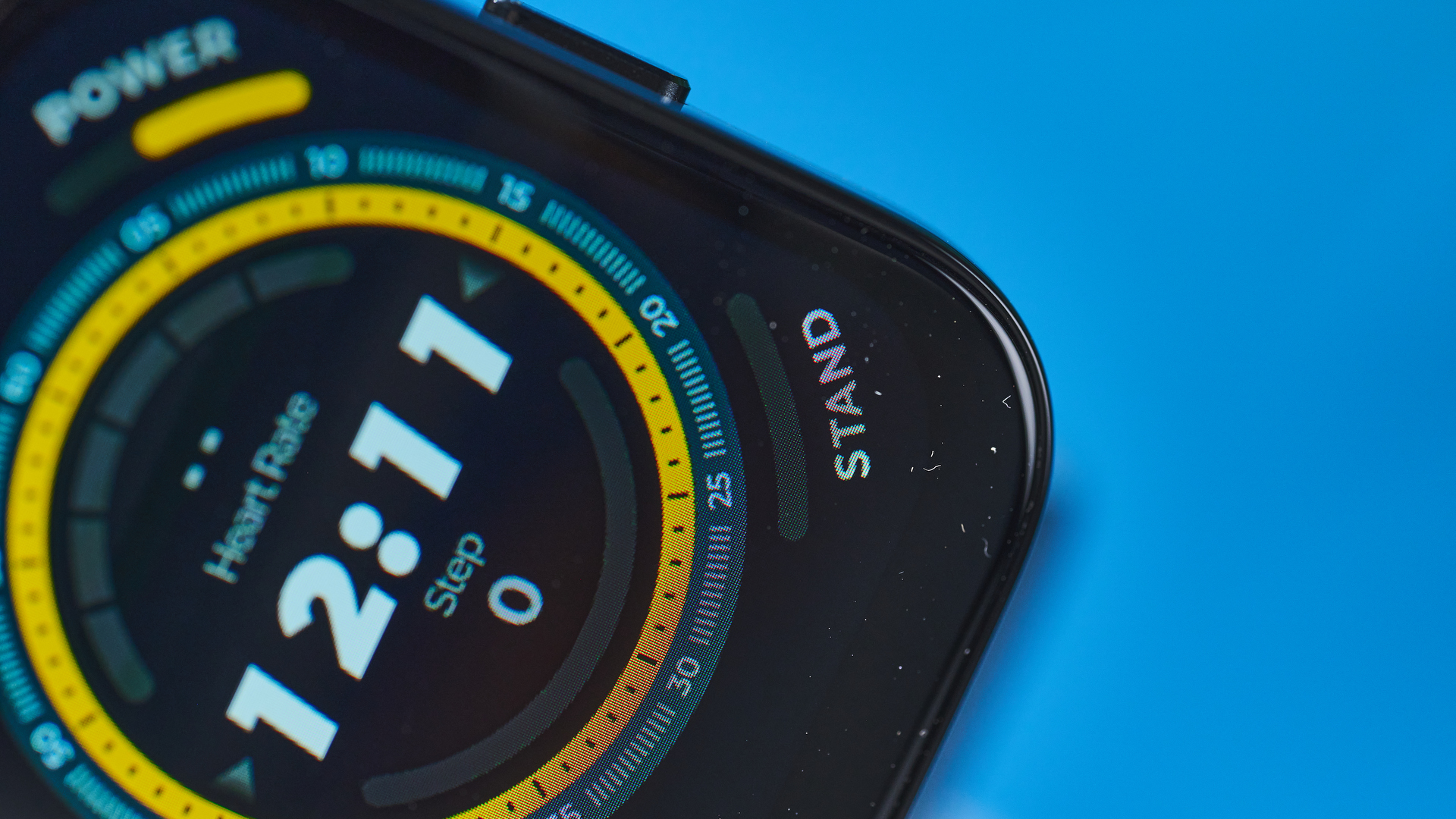
However, this ‘PAI’ score feels really hard to earn. On Tuesday, I cycled to the office, completed an 80-minute strength training workout, a 45-minute yoga class, and cycled back home (up a crazy steep hill) and gained 14 PAI. On Wednesday, I walked 10,000 steps, but only earnt 2 PAI. On Friday, I walked 20,000 steps and earnt 9 PAI — surely it should be 4? So that’s only 25 PAI in total for a lot of exercise. The Zepp app advises me that if I cycle for 81 minutes today, I’ll gain the 9 PAI to reach my next goal — but 81 minutes! I don’t have that kind of free time. I’m not sure if this is a Zepp/Amazfit issue or a flaw in the scientific calculation, but it feels unachievable in practical terms.
In terms of sleep tracking, the Bip 5 is disappointing. While testing this watch, there were a number of times I awoke in the night and thought to myself “I wonder if the watch will pick up on this”. Unfortunately for Amazfit, none of my night time wakeups were tracked by the Bip 5.
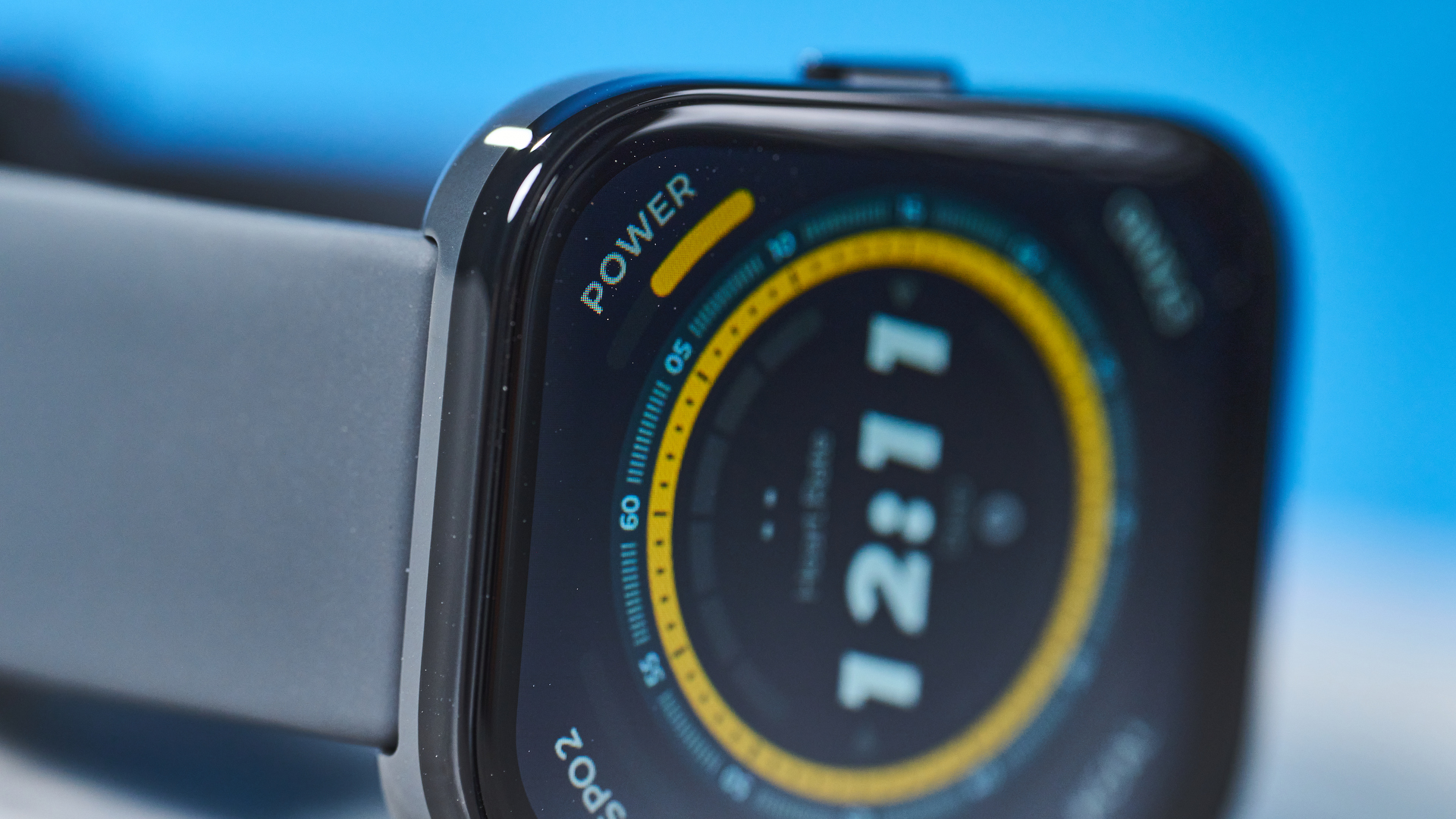
You can expand your sleep tracking into a landscape-mode graph inside the app and click on any time to deep-dive into your minute-by-minute tracking. When I did this, I was confused why my high heart rate was recorded as ‘deep sleep’, instead of ‘REM’. The app does tell you more about each sleep phase, which is fantastic, but it doesn’t explain why my higher heart rate wasn’t tracked as ‘REM’.
It’s a different story compared to the Fitbit Charge 6 ($159), which is our best budget fitness tracker for sleep tracking. The Charge 6’s sleep tracking was comparable to the Oura ring ($299), so if you’re in desperate need of a reliable sleep tracker, maybe you should look into the Charge 6 instead.
Amazfit Bip 5 fitness tracker review: Extra features
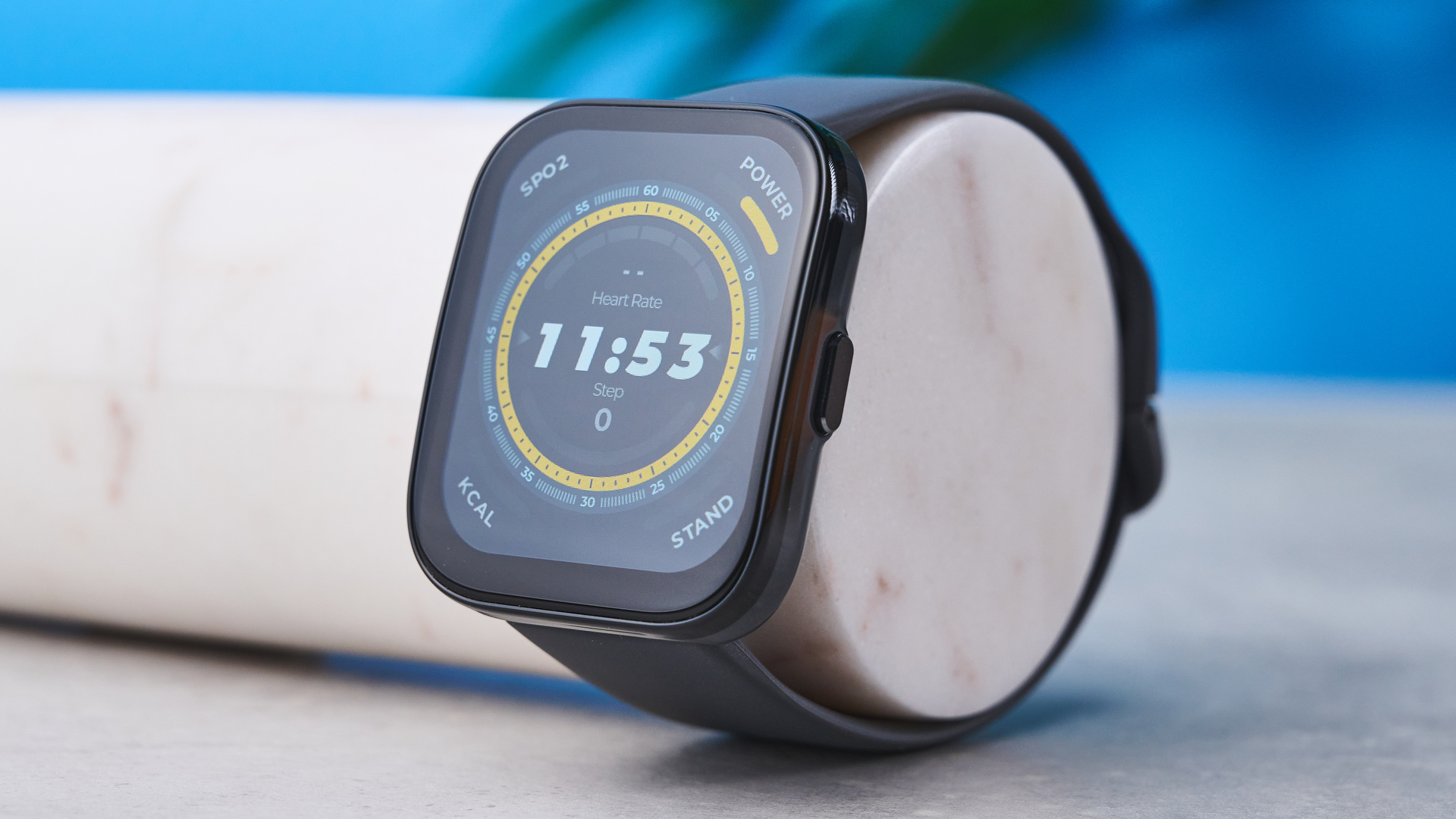
Despite the name, Amazfit is not owned or associated with Amazon. But if you’re a Prime user, you’ll be pleased to know the Amazfit range of fitness trackers have Alexa voice assistant built into the watch. As I don’t have an Amazon account, I couldn’t test it myself.
As with the Google Pixel Watch 3 ($399) and the Apple Watch SE Gen 2 ($249), you can load up the Amazfit Bip 5 with membership cards. You have to install these cards via the Zepp app, but it’s pretty straightforward, albeit tedious. You have to manually type out your cards’ 13-digit code, but once you do that they’re ready to go in your watch.
Amazfit Bip 5 fitness tracker review: App
The Amazfit Bip 5 runs off the Zepp app, which is available on iOS and Android. It’s used for all Amazfit fitness trackers, so you might see pages for features only accessible on the pricier devices like the Balance and Active range. Even so, you can easily remove these from your homepage.
The app is well designed, with easy-to-read metrics and great graphics. I think this app could be used by anyone, including those that are less tech-savvy. I especially liked the homepage design, where you can scroll through your sleep score, PAI score, activities, and customize your tools. There’s even a ‘Zepp Aura’ section, which is an AI-generated Q&A, but you have to pay $70 a year for the privilege. While I think it’s useful to have personalized, AI-generated analysis of your metrics, I think it would be more effective if you could see a preview without a subscription to entice users.
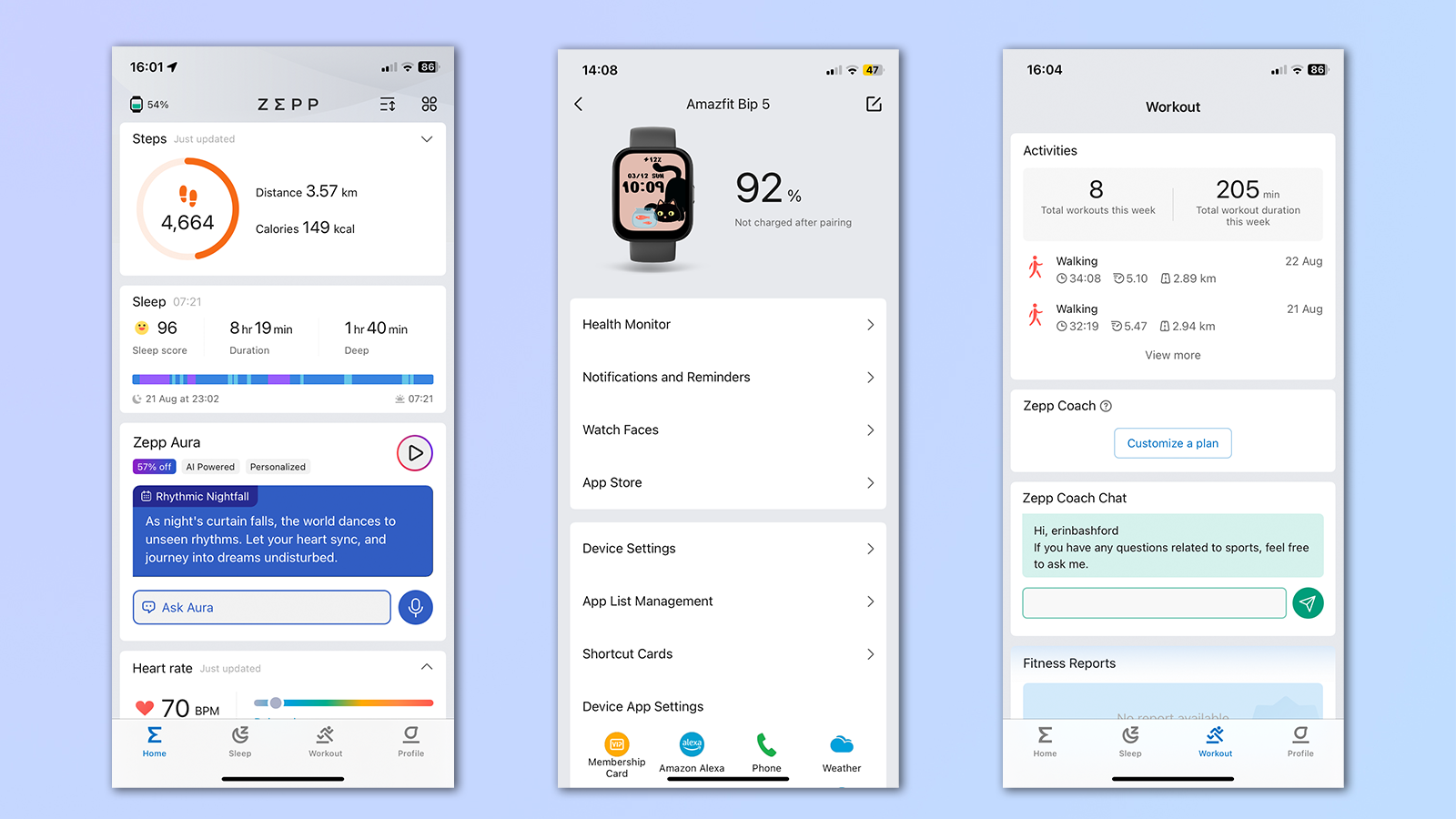
In the Zepp app there are also free pilates courses, workout sessions, and stretches you can download from the app onto your fitness tracker to workout wherever you may be. Amazfit describes their fitness trackers as having a “rich app ecosystem”, which I couldn’t agree with more. There are loads of non-fitness related features built into the watch, like meditation, and reminders.
Amazfit Bip 5 fitness tracker review: Battery life
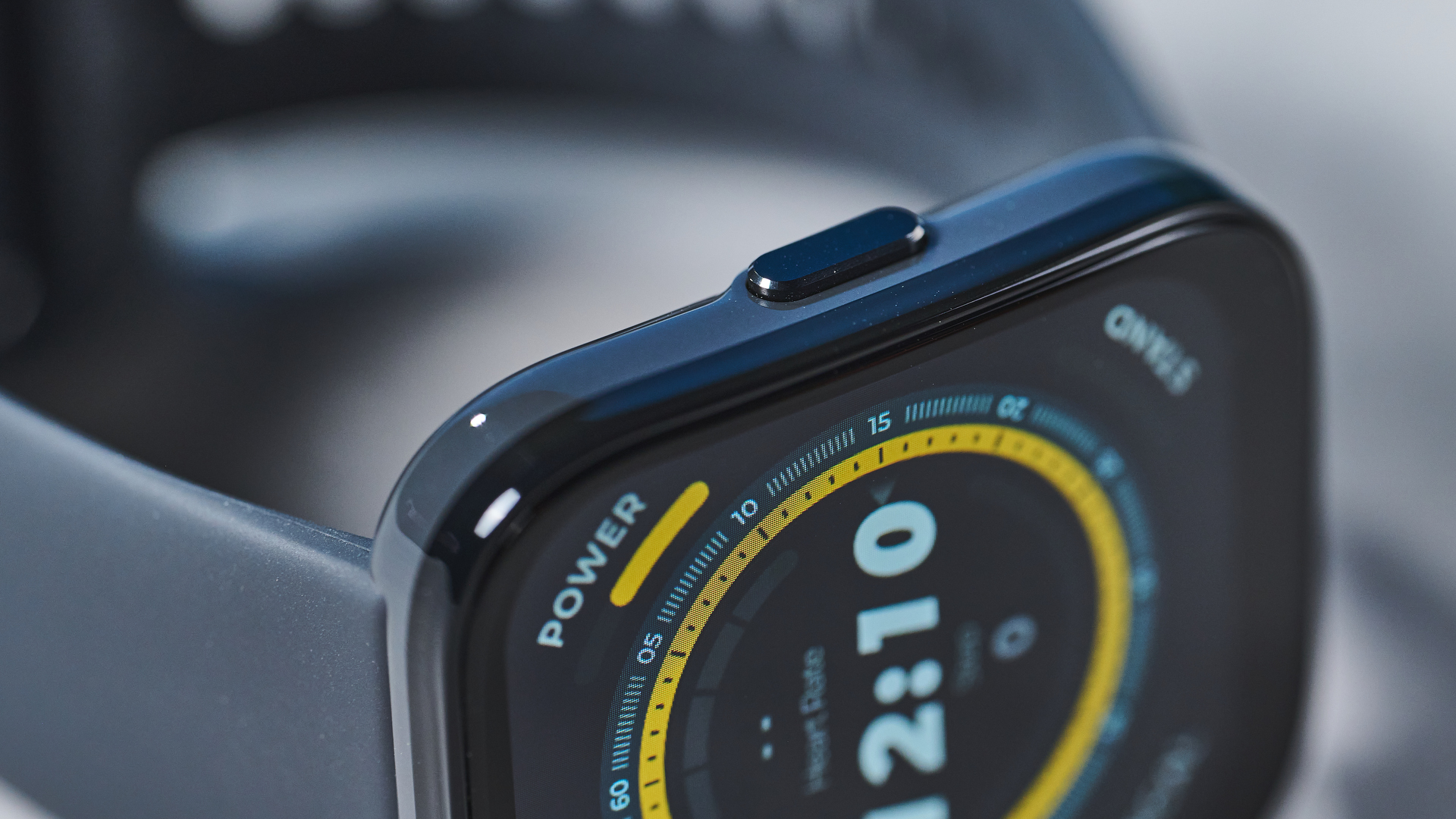
I used the Amazfit Bip 5 for a week without recharging it. While Amazfit claims the Bip 5’s battery life is 10 days, I found that up to 7 is a more realistic number without enabling low battery mode. Perhaps with low battery life enabled, 10 days is achievable. The Fitbit Versa 4 ($199) lasts for 6 days on a single charge, which is about the same as the Amazfit Bip 5 — but will cost you $110 more. For only $89, this battery life is still mind-bogglingly good.
Amazfit Bip 5 review: Should you buy it?
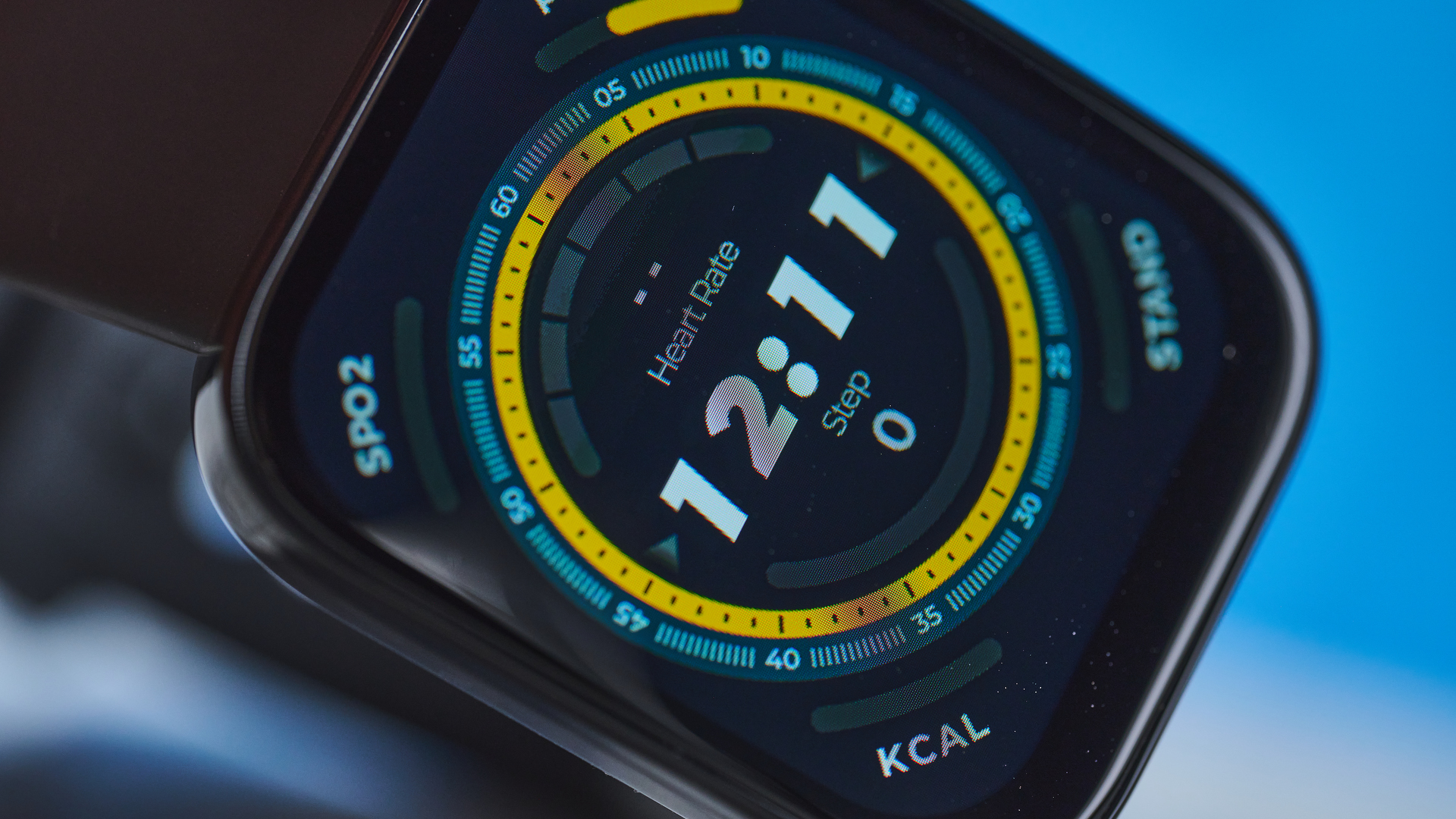
While it’s not without its quirks, the Amazfit Bip 5 is a complete game-changer on the budget fitness tracker and fitness tracker market. It’s got the lot: a gorgeous display with bright colors and responsive touchscreen, 120 exercise types, great GPS and speed tracking, and passable sleep tracking. While it’s not necessarily as specific with the sleep tracking as I’d like, and you have to pay for weekly reports, this fitness tracker is an absolute steal, and I’m not quite sure how Amazfit has done it.

